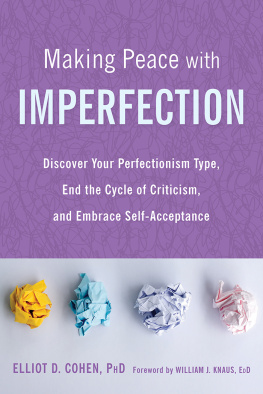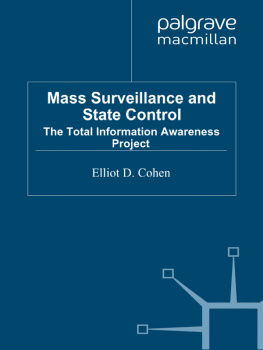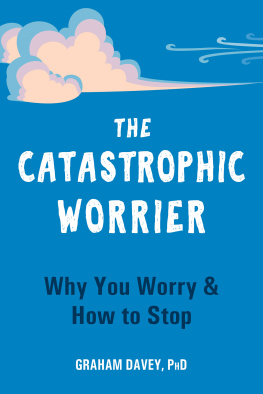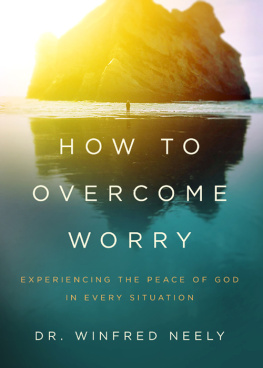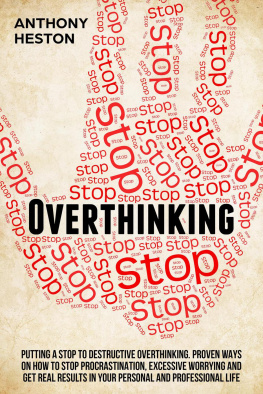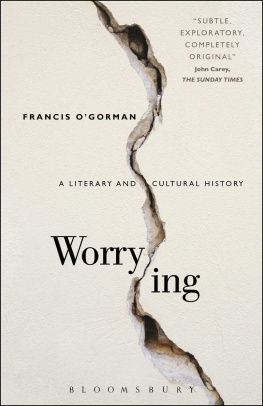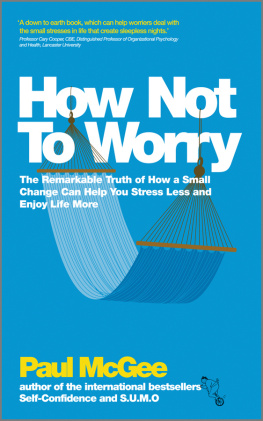Acknowledgments
Many of the ideas in this book are based on the work of the late, great Albert Ellis, the grandfather of cognitive behavioral therapy. Since the mid-1980s, when I first began to develop the therapeutic approach embedded in this book, Al was a friend, mentor, and inspiration. In addition to teaching me the mechanics of his therapy, he read my manuscripts, shared his ideas with me, and endorsed my books. His positive influences on my life and on the ideas contained in this book are inestimable.
I would also like to thank my wife, Dr. Gale S. Cohen, a licensed mental health counselor, with whom I have discussed many of the ideas contained in this book. Having first met in high school, Gale and I have had a lifetime of collaboration, and my love, admiration, and appreciation for this beautiful woman continues to blossom.
The ideas in this book have also evolved out of my work with clients, students, and colleagues. To these individuals, collectively and individually, I also owe a debt of gratitude.
Finally, I would like to thank my editors at New Harbinger: Kayla Sussell, Jess Beebe, Jess OBrien, and Brady Kahn. These incredibly talented professionals have provided invaluable editorial wisdom, insight, and guidance throughout the preparation of this book.
Elliot D. Cohen, PhD, is professor and chair of the department of humanities at Indian River State College, adjunct professor of clinical ethics at the Florida State University College of Medicine, and director of the Institute of Critical Thinking. The author of numerous books and articles, he is a principal founder of philosophical counseling in the United States and inventor of logic-based therapy. He writes a blog for Psychology Today and has been quoted in major media venues, including New York Times Magazine.
Chapter 1
How Dutiful Worrying Undermines Your Happiness
If you are a dutiful worrier, then chances are you spend much of your life ruminating about problems and feeling guilty when you try to stop. In this way, dutiful worrying excludes and crowds out constructive activities. Take, for example, the case of a client named Jenna.
Jennas Story
Jenna was a forty-year-old working mom who confided that she was having trouble meeting her responsibilities at work and was on the verge of being fired because she found herself filling up the hours of her workday ruminating about her personal problems instead of getting her assignments done. Jenna was less concerned about losing her job than she was about these other problems.
One of her children, a fifth-grader named Tommy, was getting into fights at school with other children and had been talking back to his parents and having temper tantrums at home. While Tommy had been seeing the school psychologist for over a month, his behavior did not appear to be improving.
So Jenna sat at her desk and for hours each day ruminated about her sons problems, trying to find the right approach to dealing with him. For Jenna, life was a dark tunnel in which she was trapped, and it was up to her to find a way out. If she didnt, then life could not go on, at least not in any meaningful way. So, she just had to worry, for the sake of her family, to find a way out of this dire situation. She believed that otherwise there might be terrible consequences and she would have let her family down.
So, as she perceived it, she had a solemn duty to worry and to keep worrying until, somehow in her ruminating despair, she would discover the perfect or near-perfect solution.
Jenna did not see any way out of this dark tunnel. If she tried to stop worrying, she would incur the wrath of her guilt. This guilt would rear its ugly head in fleeting thoughts that kept her in bondage to her worry: What kind of mother are you to abandon your own son? Dont you love your little boy enough to anguish over him? How could you live with yourself if something happened to him?
Not only did Jenna immerse herself in worry, but she also expected her husband to do the same. As she saw it, he too had a duty to worry about their child. After all, he was Tommys father. How could he take his eye off the ball at a time like this when his own flesh and blood needed his help? What kind of father could do that?
So conceived, its no wonder that Jenna felt overwhelmed by her personal problems and was unable to concentrate at work under such stressful conditions.
Can you sympathize with how Jenna was feeling? Oh, I understand that feeling, you might say. Ive been there before, myself. I know just how she felt. True enough, but be careful, for it is one thing to have sympathy for someone who is going through difficult times and quite another thing to say that what this person is doing about her situation (namely, worrying herself sick instead of doing her work) is rational or helpful.
Guilt and Worry
Let me be blunt. There simply is no moral duty to worry yourself into an early grave when you have problems, real or imagined. So theres really no reason to feel guilty about not worrying. Thats right. I said no reason, because guilt always arises from the perception of having done something morally wrong. When someone feels guilty, she feels bad about having violated some moral principle, about having breached a duty of some kind. But when you have a problem, you do not have a moral duty to torment yourself with worry. So there is literally nothing to feel guilty about when you refuse to worry.
While there appear to be biological factors that predispose people toward worrying, dutiful worrying always involves a choice. In fact, the root of dutiful worrying lies in a moral decision. Dutiful worrying involves an earnest although self-defeating attempt to do the right thing. People who are dutiful worriers choose to worry, and do so because they perceive that worrying is a moral imperative. Thus Jenna tried to justify her worrying by claiming that her personal problems took priority over her work. But Jenna had a choice. She didnt have to worry. She could choose to do her work and keep her job. In the end, this was the choice she did, in fact, make. But before she did, the needless stress she created by worrying took its toll.
Faulty Moral Reasoning
Dutiful worrying involves self-defeating moral reasoning, or moral decision-making. As you will see, moral decisions are about what to do when someones welfare, interests, or needs, (including your own) are at stake. Self-defeating moral reasoning is moral reasoning that backfires. It doesnt advance anyones positive welfare, interests, or needs, but instead makes things worse.
Thus, Jenna made a moral decision when she decided to ruminate instead of doing her work. But its not rocket science to see that Jennas moral decision was a self-defeating one. She helped no one and just made things worse for herself and the rest of her family.
So why in the name of goodness would anyone make such a self-defeating decision? It defies rationality. But thats just it. Such moral reasoning is irrational.
When thinking is irrational, you can say it contains fallacies. A fallacy is a way of thinking or reasoning that tends to be self-defeating; that is, it has a proven track record of frustrating personal and interpersonal happiness. Dutiful worrying is chock-full of fallacies.
Confronting Your Distorted Thinking
Some people go through a lifetime not realizing that the key to their unhappiness is their distorted thinking. They rely on certain habits of thinking to make life choices, never questioning them and never realizing that these ways of thinking are irrational.
Some other people come to see that their thinking contains fallacies and that they are being irrational, yet they continue to make irrational decisions. As you will see, realizing that you are thinking irrationally is only a start; you will have to do more work to overcome the fallacies in your thinking. You may say, I have no fallacies in my thinking. The truth is that if you are human, you are fallible. In fact, its a fallacy to think that you are perfect and have no fallacies. Give up that fallacious idea, and you will be more likely to make progress in overcoming your fallacies. Its okay to admit that youre imperfect and the world is imperfect. Its an excellent place to start.


